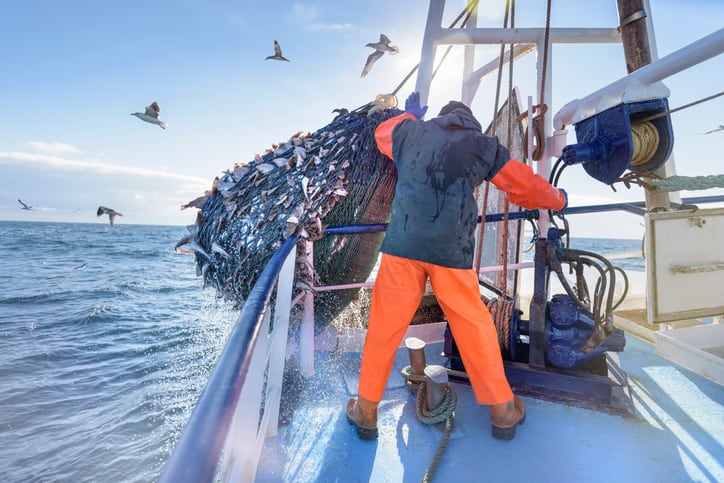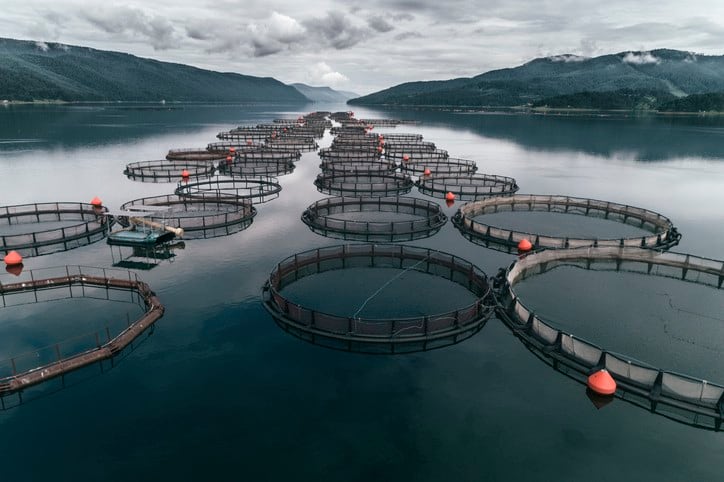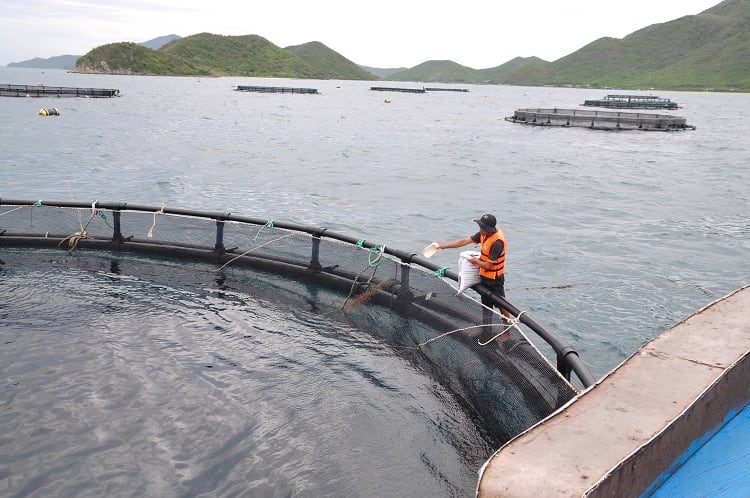In the wake of the IPCC report, and ahead of the COP26 climate summit, the conservation organisations claimed the UK has the opportunity to combine its world leading stance on climate change mitigation with the heightened consumer interest in sustainable seafood by promoting new low emission fishing ventures.
It said a substantial growth in consumer purchasing power and interest in sustainably harvested seafood in recent years could provide a ‘unique opportunity’ for UK fisheries to further reduce GHG emissions.
The report put to the table a government-led ‘climate-smart’ strategy that would reduce the carbon emissions that come directly from the UK fishing fleet; enhance marine biodiversity by reducing - and where possible reversing - the damage from unsustainable fishing practices; and increase the potential for UK seas to act as a carbon sink by helping protect blue carbon habitats.
According to the report, over 50% of the UK fishing fleet vessels are around 30 years old, and the vast majority are powered by fossil fuels. Based on UK fishing vessel activity data, UK fisheries are estimated to have emitted 914.4. kilotons of CO2 over a 1 year period, the same as providing the annual energy use of over 110,000 homes.
Fisheries can also damage the ocean’s capacity to act as a carbon sink, due to the use of bottom towed gear that destroys carbon-rich habitats like seagrass meadows and muddy sediments, while fishing beyond sustainable levels removes too much biomass from the ocean, further undermining its potential as a carbon sink. The first post-Brexit UK fish stock audit published at the start of 2021 showed that only three of the UK’s top ten fish populations are fished at or below maximum sustainable yield.
Despite these impacts, the report shows that fisheries are all-too-often overlooked by governments in strategies to address the climate and nature crises. It concludes that, by adopting a ‘climate-smart’ fisheries strategy, UK governments could help to accelerate progress to net zero and make the UK fishing industry leaders in the field.
Helen McLachlan, Fisheries Programme Lead at WWF, said: “The ocean is the blue heart of our planet and, when it comes to tackling the climate and nature crises, we ignore it at our peril.
“As an independent coastal state, the UK has the chance to set a gold standard in fisheries management by delivering on the world-leading climate commitments set out in the UK Fisheries Act 2020 – ministers must make good on that promise.
“Adopting a climate-smart strategy is the way to do this, futureproofing the sector while showcasing the UK’s commitment to slashing its global environmental footprint ahead of COP26. We won’t forget the UK governments’ climate promises and, together with our supporters, we will hold governments to account for delivering on them.”
According to the organizations, fisheries present a ‘complex’ problem in contributing to the goal of net zero carbon emissions as they are both vulnerable to the impacts of climate change whilst also contributing to it. Fisheries contribute to greenhouse gas (GHG) emissions through the disturbance of blue carbon – which refers to the carbon captured and stored in coastal and marine ecosystems -- habitats in marine systems, the extraction of fish, disruptions to ecosystem function and industry-wide fossil fuel use.
Gareth Cunningham, Head of Fisheries and Aquaculture at the Marine Conservation Society added: “Much like we seek to modernise the UK’s energy sector, we need a modern approach to how we source our seafood. Not just to address the dual climate and nature crises, but to ensure that sustainable seafood is an integral part of the UK food system.
“Change is never easy. But we cannot build a sustainable, healthy seafood sector whilst damaging the marine environment. Realising the benefits of climate smart fishing is vital to restoring our marine environment, providing a healthy source of protein and a future for the industry that supplies it.”
The report concludes that a climate-smart strategy, which if adopted, should focus on six key actions that act as an intertwined system where players should actively seek to:
• Limit bottom towed fishing gear to protect and support recovery of blue carbon within current MPAs and in key areas outside of MPAs.
• Work to decarbonise the UK fleet including removing fuel subsidies and eliminate inefficient fleet structures.
• Mandate Remote Electronic Monitoring (REM) with cameras that incorporate Vessel Monitoring Systems (VMS) across vessels fishing in UK waters to deliver increased transparency and traceability across the UK fishing industry to improve stock health and increase biomass.
• Reduce pressure from heavy, towed bottom fisheries gear and review the impact of passive gear use and whether incentives for gear changes are appropriate.
• Strengthen overall marine policy frameworks with a climate change lens such as the UK Marine Strategy, to make them fit for purpose in a bid to combat the climate crisis.
• Increase research and knowledge on blue carbon habitats, stocks, and the fishing sectors GHG emissions and blue carbon impact
Alex Kinninmonth, the RSPB’s head of marine policy, said: “The nature and climate emergency is threatening life above and below the waves right here in the UK. Every industry must now play a part in driving the rapid decarbonisation and restoration of nature needed to avoid climate breakdown.
“This report offers a roadmap for fisheries managers to meet climate targets while safeguarding our seas for future generations. Ahead of crucial climate and nature COPs and with a Joint Fisheries Statement by all four governments of the UK due, now is the crucial moment to commit to and deliver an ambitious ‘climate-smart’ strategy to future proof our fisheries and revive our world.”
“The fishing industry’s carbon footprint combined with its significant impacts on long-term carbon capture and storage in blue carbon habitats makes the industry an important consideration when designating GHG reduction and climate mitigation strategies. However, governments have generally been slow to acknowledge the fishing industry’s impact on GHG emissions and blue carbon stores. Fisheries are commonly missed from assessments of GHGs, not considered in climate change mitigation strategies and are largely ignored during climate negotiations.”




